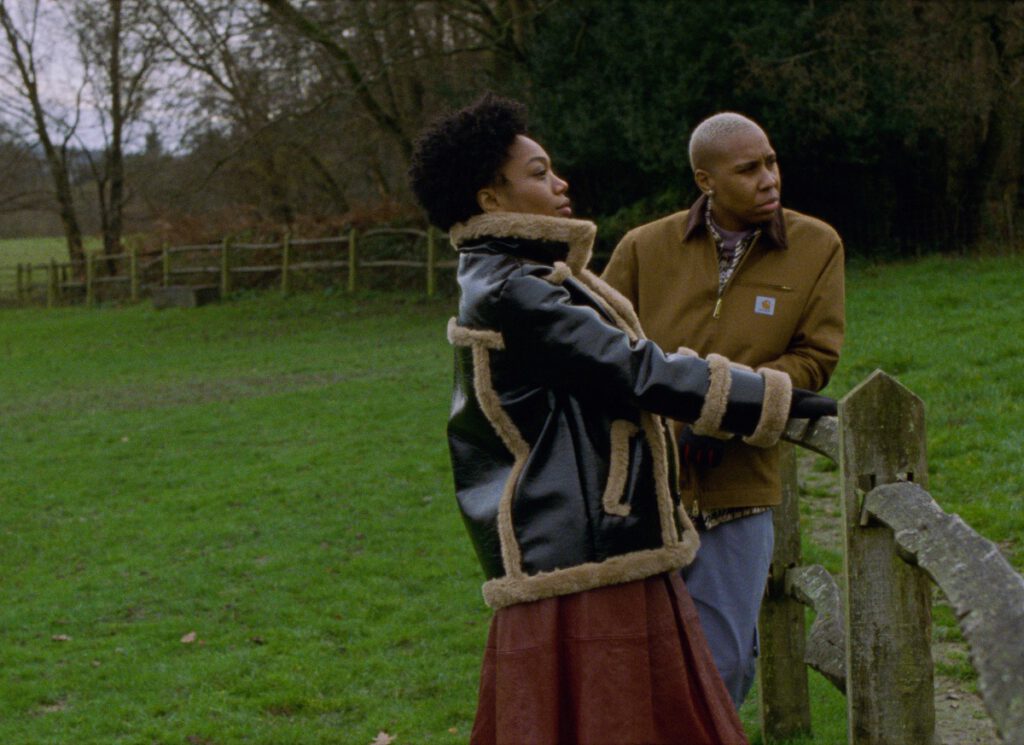When Aziz Ansari was accused of sexual misconduct back in 2018, it seemed like his award-winning Netflix series “Master of None” was likely over. After all, the series that Ansari co-created with Alan Yang was a loosely fictional version of his real life and that reality had the kind of narrative-shifting revelation that makes it impossible to return to normal again. So it was surprising to learn that a third season would premiere on Netflix on May 23rd, 2021, but it really shouldn’t be that shocking. Ansari has been slowly working his way back into pop culture, including a 2019 stand-up special on Netflix, and the occasional voice guest spot on animated television. And he spends this entire five-episode mini-season behind the camera—his character Dev only popping up in two scenes—ceding the spotlight to another breakout of the first two seasons of the show, Lena Waithe, whose previous writing on “Master of None” made her the first Black woman ever to win the Outstanding Writing for a Comedy Series Emmy award. Her sensibility takes center stage for a limited series called “Moments in Love” that details the troubled marriage of Waithe’s Denise to a woman named Alicia, played unforgettably by BAFTA winner Naomi Ackie. It’s sometimes too languorous for its own good, especially in its midsection, but it builds to a powerful pair of final episodes that really elevate Ackie, who gives a phenomenal performance.

While “Moments in Love” is technically spread out over five episodes, it really has about seven episodes of story. The first chapter is 55 minutes; the fourth chapter is 52 minutes; the others are around 25. That first hour brings us back into the life of Denise, who has gotten married and written a successful novel called The Three Loves of Althea Waters. She is struggling with the follow-up, something that Ansari and Waithe can understand given how much “Master of None” was universally acclaimed. (Waithe went on a tear, involved in “The Chi,” “Queen and Slim,” and the recent “Them”). While the “cost of success” narrative has been done to death, there’s something interesting in the way this project points a finger back at the artists who become so obsessed with repeating their accomplishments that they ignore the people around them. Denise barely calls Dev anymore and doesn’t even know that he’s moved back in with his parents. Worse, she seems to be drifting from Alicia, and when her wife suggests they have a child, the fact that Denise brings up her work first is a signal that this is a decision that could backfire. It definitely does, but in unexpected ways.
That first episode will be too slow and deliberate for some people. It has long dialogue scenes, and even a pair of dance numbers between Alicia and Denise that have very different energies. What’s interesting is how Ansari the director will spend an incredible amount of time on what might be considered mundane and then speed through major events with montage. It creates a sense of leafing through old photographs—sometimes we linger over one for a long time; sometimes we leaf through the years in a matter of seconds.
There’s an undeniable sense of something lost in this story that feature writers will use as commentary on Ansari’s career and allegations. When Dev says, “I never realized how good I had it,” it’s hard not to think about how life has changed “Master of None” so drastically. A show that was once about pushing into an optimistic future has become one that’s more focused on mistakes and regrets. The second and third episodes threaten to sink this entire project into a self-indulgent mud, but then Ansari and Waithe shift their focus to Alicia in the fourth episode, which is a tour de force for Ackie. It would be a spoiler to discuss the emotional current that drives the hour, but it’s a deeply empathetic and powerful piece of work, an example of a writer, director, and star being on exactly the same page.
While “Master of None” may feel like a very different show—it’s not really a comedy anymore, for example—the final couple of episodes tie it back to the original two seasons in an unexpected way in that it again feels like a show about someone battling the unexpected roadblocks of life. There are so many unrelated stories hanging in the background of “Master of None,” and they won’t go away any time soon—Waithe had her share of off-screen drama too, particularly in relation to how she handled allegations from the set of her show “The Chi” and the divisive response to “Queen and Slim.” Even the recent “Them” earned Waithe some side-eye. So what’s so telling about how much Ackie brings to “Master of None” is how much all of these other things fade away. “Master of None” was at least in part about how the unpredictability of life often smashes headfirst into the belief that we’re supposed to have all of our shit figured out by the time we’re 30. That unpredictability remains, both in where Denise and Alicia end up, and this ultimately powerful drama’s very essence.
Whole season screened for review.












